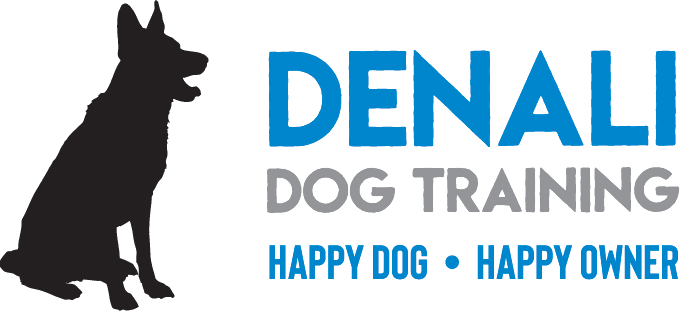Snake season is particularly bad this year. The good news is positive snake avoidance training is simple . You just need to practice to make it a habit- and refresh your dog's memory regularly to be on the safe side .
Teaching your dog anything with positive reinforcement is just a matter of cue / trigger - followed by desired behaviour - reward .
You have a number of ways to accomplish this.
TEACH A DEFAULT BEHAVIOUR / RECALL - teach your dog that the sight smell or sound of a snake is the cue to move away. Intially you need a leash and the trigger - snake skin( handle with gloves ), harmless snake eg a pet python in a safe carrier ,or a lifelike toy snake on a string, the track where you know a snake has recently been, or with some dogs you can use an image or sound of a snake on google. You might teach your dog a cue eg touch your leg then call your dog away from the trigger and ask for the leg touch so your dog will always come back to you and touch your leg when it detects a snake . REWARD WELL ! Or you can simply teach a recall -but you will not be aware of the reason of the dog's unprompted return to you if you don't teach the cue that follows meaning snake . You can also teach your dog to return to a designated place eg the house or a pen( you can rig the pen to close after the dog enters it ) if you aren't around to keep the dog from going back to the snake or the snake from entering the dog's pen ( use snake mesh to keep the snake out .)
BACK - teaching dog to back away and then following snake cue with this will with practice develop the habit of backing away from a snake.
LEAVE IT- teaching a reliable leave it and then practicing with the snake cue will also develop the habit of leave a snake .
IMPULSE CONTROL - impulse control follows on from leave it (or can be taught seperately )and is leave it without the verbal cue from you . So that your dog sees a snake and walks away from it .
DISENGAGEMENT - teaching your dog to disengage from the trigger without a verbal cue , a slightly different way from impulse control to teach your dog to switch off from a trigger .
PREDATION SUBSITUTION - a technique that teaches your dog to disengage from a prey item by rewarding it when it disengages from the trigger with a "hunt "/ chase of a prey substitute thrown in the other direction - fun and reward happens in the opposite direction of the prey. As with everything, practice builds it into a habit so you no longer need the chase of the substitute in order for the dog to disengage from the trigger .
If you need help with any of these, call me .
OTHER WAYS TO CONTROL SNAKES-
BARRIERS:-
Snake mesh is a metal mesh of less than .6 mm which is too small for snakes to enter , which you can attach to the outside of a fence , also lay or bury a barrier of it in front of the fence, and have a slight overhang on the outside to keep snakes from climbing up and over, and ensure it can't climb over by way of a tree or other plant. If you use chicken mesh or loose bird netting, snakes will become entangled and injured or killed. A trapped alive snake will mean you have a dangerous snake stuck in the mesh /netting. It is illegal to kill a snake in South Australia unless it is attacking a person. A snake catcher is expensive and will release the snake within 2 kms of where it was caught, because snakes who are released further away will usually die.
BIRDS -
Peafowl, turkeys ,pheasants ,guinea fowl, geese, emus and ostriches will eat or noisily mob and chase away snakes,but are often very noisy( neighbours ) and require appropriate fences, permits, etc . Encouraging kooaburras , butcher birds, owls and raptors, if any around your property, will also prey on snakes. Plant trees that will attract these birds .
Chicken coops will encourage snakes( eggs,chicks, mice and birds after feed). Roosters may attack snakes.
RODENTS - getting rid of rodents will help discourage snakes, ( eg keep feed in bins , snake mesh will keep mice out too ).
WATER - snakes are attracted to water sources especially when it is hot . Sadly ponds may attract snakes.
ROCKERIES AND HIDING PLACES EG WOODPILES- cement up holes snakes might shelter in , stack wood neatly off the ground and behind a snake mesh or similar barrier .
OVER GROWN GARDENS - keep shrubbery and grass short and ensure you dont put hands or feet where you can't see . Snake fangs are quite short and don't penetrate deep, so long boots ,long thick pants and sleeves are recommended as offering some protection for humans.
SNAKE REPELLERS - snake repellers may or may not work- opinion is divided- but I believe it is always better to use it in hope it works, than not.
PLANTS - some plants eg marigolds, garlic , onions , cedar , lavender , cactus and other prickly plants , are reputed to discourage snakes but this is also disputed .Again better to plant them than not, in the hope it helps .You can google a list of plants.
SCENTS - vinegar, cedar chips ,ammonia, onions, mothballs, citronella etc are reputed to repel snakes but this is also disputed .Most if not all of the scents claimed to discourage snakes will also affect pets .
NOISE - most snakes are shy and will try to avoid threats, so making lots of noise, stamping your feet , and avoiding any hiding place will usually keep you safe .
INDOORS - snakes seek shade and cooler environments when tempratures are over 30 degrees as they cannot cool themselves .Therefore they sometimes get into homes and sheds and under items like iron sheets on the ground. Snakes can flatten themselves enough to get under a standard door so blocking gaps under doors etc is essential .
REPELLENT SPRAY - from Allan Burnett of Reptile Awareness Displays of Australia.
120 ml oil of cloves
20 ml eucalyptus oil
20 mls tea tree
20mls lavender oil
20 mls sandalwood oil
Dilute to 1 litre with water
Spray every month .
IF BITTEN - call for help , don't move the limb , apply pressure bandage , transport to nearest vet ( having called ahead first - and take your wallet with you because they may not start treatment without payment ), ancedotally Vit C ( im injection or oral ) helps - google receipe .




